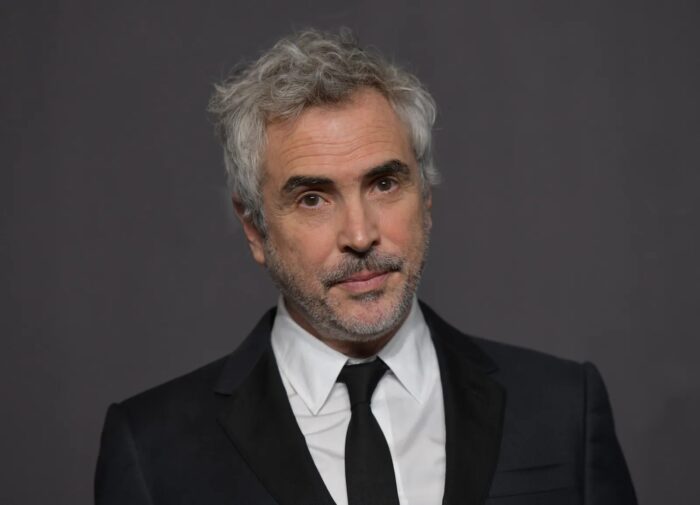Alfonso Cuarón was born in Mexico City to a doctor father and a biochemist mother, studied philosophy at university before moving on to film studies, and earned his professional spurs in the 1980s with TV work and short films. His feature-length screen debut, the unabashed sex and frantic antics comedy Love in the Time of Hysteria (1991), tells the story of a woman who jumps from one bed to the next and is led to believe by one of her partners that she has contracted AIDS. Executed true to the traditional spirit of Hollywood screwball buffoonery, staggering from room to room – and window to window – in the fashion of Chaplin’s A Countess from Hong Kong (1967), recalling Almodóvar’s Women on the Verge of a Nervous Breakdown (1988) in its grim hysterics, the film became a major national hit that also attracted the attention of Sydney Pollack.
Cuarón’s conquest of America began with A Little Princess (1995), a remake of the beloved Shirley Temple classic containing stunning visual fantasies, based on the novel by Frances Hodgson Burnett (1905). His next directorial effort, Great Expectations (1998), a modernised adaptation of the Charles Dickens (1860-1861) novel now set in the waters of Florida and the New York art world, received a more mixed reception, was overshadowed in media attention of Titanic (1997) using similar storylines, and evidently does not figure among Cuarón’s own favourites either, although the film, more reminiscent of Fitzgerald’s The Great Gatsby (1925) instead of Dickens, features not only Gwyneth Paltrow’s innate charm but also the commanding supporting performances of Anne Bancroft and Robert De Niro.
Cuarón returned to the region of his birth and rediscovered himself with the raunchy and stealthily wise road movie Y tu mamá también (2001), which sealed his international breakthrough. Its success secured him a place as the director of the third part of the international wizard franchise, Harry Potter and the Prisoner of Azkaban (2004), a film perfectly suited to the magical touches Cuarón had already displayed in the past. The subsequent succession has been a dizzying soaring flight, and the trophy and awards cabinet of the director-writer-producer-cinematographer-editor approaching a renaissance figure in terms of the versatility of his craftsmanship now probably resembles a medium-sized Ice Hall, as it has accumulated several hundred international trophies and nominations. For example, there are Oscar nominations for producer, writer and editor, and no fewer than four wins: Best Director and Editor (Gravity, 2013), Best Director and Cinematography (Roma, 2018). As a producer, Cuarón’s credits include Guillermo del Toro’s Pan’s Labyrinth (2006), Alejandro G. Iñárritu’s Biutiful (2010), and Alice Rohrwacher’s short film The Pupils (2022), with music by the festival’s perennial favourite band Cleaning Women. Such has been the impact of the work of Cuarón, del Toro, Iñárritu and Emmanuel Lubezki, who won three Best Cinematography Oscars in a row between 2013 and 2015, that it’s fair to say that Mexico is undergoing a new revolution.
The essential thing about Cuarón’s art, however, is not his external merits, but the deep essence of cinema and the love of the genre that shines through his work. All his feature films are, as if recalling Louis Malle’s choices, completely different from one another; Children of Men (2006), which at times mimics the brutal front-line images of news broadcasts, is a dark dystopia and an angsty Christian allegory; the lofty, and expansive Gravity living up to its title as a frenetic, gravity-defying gem of modern filmmaking, marked by a camera relishing its infinite directions, ingenious sound design and thriller-like staccato beats; the soulful, black-and-white Roma, stripped of all extraneous flamboyance, an intimate return to the sources of more traditional filmmaking and the director’s childhood memories.
We warmly welcome the Mexican master!
Lauri Timonen
